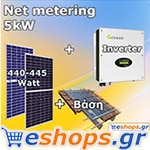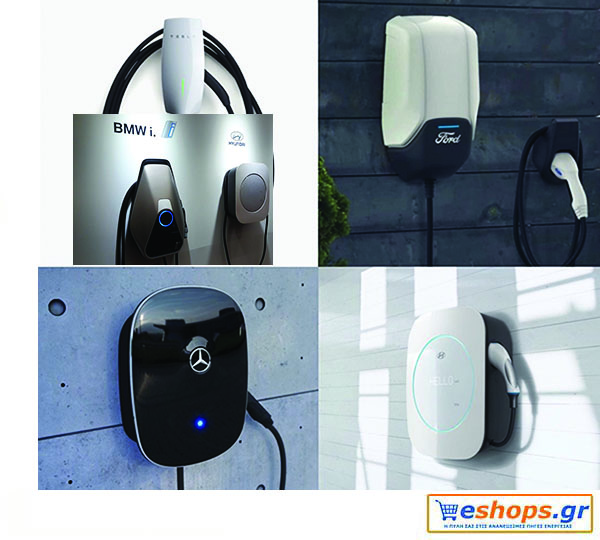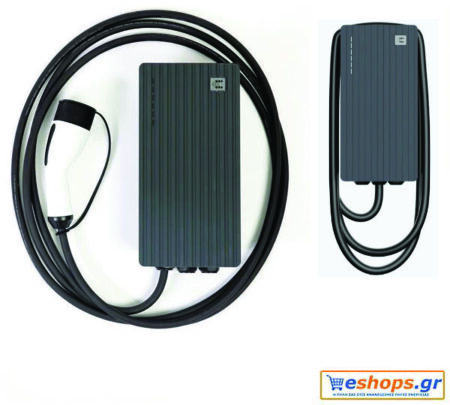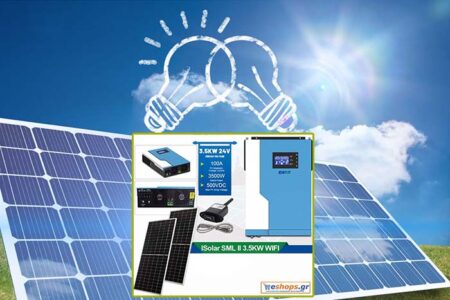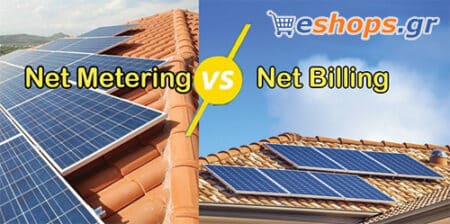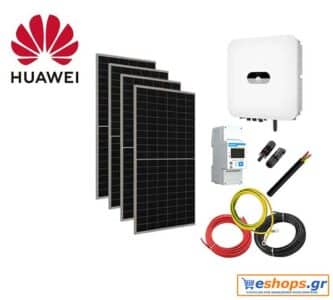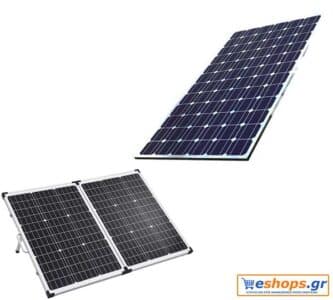Electric Car Chargers
Electric Car Chargers The Ultimate Guide to Electric Car Chargers: Everything You Need to Know
Ready to brush up on your knowledge of electric car chargers? Look no further! In this ultimate guide, we'll take you on a thrilling ride through the world of electric vehicle charging. Whether you're an experienced electric vehicle owner or just starting your green journey, we've got everything you need to know about electric car chargers right here. From different types of chargers and their capabilities to installation tips and future developments, buckle up and get ready for an electrifying adventure!
Introduction to Electric Car Chargers
Electric cars have been gaining popularity in recent years as a more environmentally friendly and sustainable mode of transportation. However, one of the major concerns for potential electric car owners is the availability and accessibility of charging stations. This is where electric car chargers come into play.
Simply put, one electric car charger is a device that provides electricity to recharge the battery of an electric vehicle. It acts as a gas station for your electric car, but instead of pumping gas, it charges your car battery with electricity.
Electric Car Chargers Types of electric car chargers
There are three main types chargers of electric cars – Level 1, Level 2 and DC fast chargers. Let's take a closer look at each type:
1. Level 1 Charger: This is the most basic type of charger that comes standard with every new electric vehicle. It uses a regular household outlet (120 volts) to slowly charge your vehicle battery. On average, it takes about 8-12 hours to fully charge an empty battery using a level 1 charger.
2. Level 2 Charger: This type of charger requires a dedicated circuit with a higher voltage (240 volts), similar to what you would use for large appliances like dryers or stoves. It can charge your car battery much faster than a level 1 charger and it usually takes about 4-6 hours to fully charge an empty battery.
3. DC Fast Charger: The fastest available option for public charging stations
Benefits of owning an electric vehicle charger
Electric vehicles (EVs) are becoming increasingly popular as more people recognize the benefits of switching to a cleaner and more sustainable mode of transport. However, with growing concerns about range stress and limited charging options, owning an electric vehicle is still considered inconvenient by some. This is where owning an electric vehicle charger comes in.
There are many advantages to having your own EV charger at home or at work. In this section, we will discuss the various advantages of owning an electric vehicle charger:
1. Convenience and flexibility: One of the biggest advantages of owning an EV charger is the convenience it offers. With your own charger, you no longer need to rely on public charging stations or worry about finding one near your destination. You can simply connect your car whenever needed without any hassle or hassle.
Additionally, having an EV charger at home also gives you the flexibility to charge your car overnight, when electricity prices are typically lower. This can lead to significant cost savings in the long run.
2. Faster charging speeds: Public charging stations typically take longer to charge an EV compared to dedicated chargers at home or work. This is because public chargers often have a lower power output due to sharing between multiple vehicles.
Having an electric vehicle charger allows for faster charging speeds as they are specifically designed for individual use and can provide higher power output. For example, a level 2 EV charger (240V) can charge most EVs from about 0-100%
Types of electric vehicle chargers
There are three main types of electric vehicle (EV) chargers: Level 1, Level 2 and DC Fast Chargers. Each type has its own advantages and limitations, so it's important to understand the differences in order to choose the best one for your charging needs.
Electric Car Chargers: 1. Level 1 Charger:
Level 1 chargers are the most basic and common type of EV charger. They use a standard 120 volt outlet and can be plugged into any household wall outlet. This makes them convenient and easy to use as they can be installed anywhere with an electrical outlet. However, they have a slower charging speed compared to other types, typically adding about 4-5 miles of range per hour of charging.
Level 1 chargers are suitable for overnight charging at home or in locations where you don't need a quick recharge, such as workplace car parks or public areas where cars are parked for longer periods.
Electric Car Chargers: 2. Level 2 Charger:
Level 2 chargers use a higher voltage (240 volts) than Level 1 chargers, allowing for faster charging times. They can add around 25 miles of range per hour of charging, making them ideal for everyday use at home or at public charging stations.
Level 2 chargers require professional installation by an electrician as they need a dedicated circuit and special wiring to handle the higher voltage. They also tend to be more expensive than Level 1 chargers, but offer more convenience and flexibility in terms of charging speed.
3
– Level 1 charger
Level 1 chargers, also known as “trickle chargers” or “120 volt chargers”, are the most basic type of electric car charger available. These chargers use a standard household outlet (usually NEMA 5-15) and provide a low level of power to charge your electric car battery.
Power output:
A Level 1 charger typically provides up to 1,4 kilowatts (kW) of power, which translates to about 4-5 miles of range per hour. This may not seem like much compared to other types of chargers, but it's perfect for drivers who have access to overnight charging at home or work.
Charging time:
The charging time of a level 1 charger can vary depending on the size of your car's battery and the amount of charge it currently has. On average, it takes around 8-14 hours to fully charge an electric car with a level 1 charger. This makes it ideal for daily commutes or short trips where you will have enough time to recharge your vehicle overnight.
Installation:
One of the biggest advantages of a level 1 charger is its ease of installation. Since it uses a standard household outlet, you don't need any additional equipment or modifications to your electrical system. Just plug in the charger and start charging your car.
Cost:
Level 1 chargers are generally the most affordable option when it comes to purchasing an electric car charger. Costs can range from $
– Level 2 charger
Level 2 chargers are the most commonly used type of electric car charger for home and business use. They offer faster charging times compared to Level 1 chargers, making them a popular choice for electric car owners.
One of the main advantages of Level 2 chargers is their ability to charge an electric vehicle (EV) at a rate of about 20-25 miles per hour, depending on the specific voltage and power output. This means that an average EV with a battery size of 60 kWh can be fully charged in about 8 hours using a level 2 charger.
Level 2 chargers also have different power ratings, typically ranging from 3,7 kW to 22 kW or higher. The higher the power rating, the faster your EV will charge. However, it is important to note that the maximum charging speed also depends on the capacity of your car charger.
These chargers use a standard SAE J1772 connector that is compatible with most EV models in North America. They also require a dedicated circuit and special outlet installation, similar to those needed for large household appliances such as refrigerators or dryers.
In terms of cost, Level 2 chargers are more expensive than Level 1 chargers due to their higher power output and special installation requirements. On average, they cost between $500-$1000 plus installation costs.
However, many utility companies offer rebates or incentives for purchasing and installing Level 2 chargers at home
– DC fast charger
DC Fast Chargers, also known as Level 3 chargers, are the fastest and most powerful type of electric car charger available on the market. These chargers are able to provide a significant amount of charge to an electric vehicle in a short period of time, making them ideal for long distance travel or quick refueling.
How does a DC fast charger work?
Unlike other types of chargers that convert AC (alternating current) power from the grid to DC (direct current) power for the car battery, DC fast chargers can provide high voltage DC power directly to the battery. This eliminates the need for an on-board charger in the vehicle, allowing much faster charging speeds.
Most DC fast chargers use a technology called CHAdeMO (CHArge de MOve), which was developed by Japanese automakers and is widely used by Asian car manufacturers. However, there are newer models that use CCS (Combined Charging System) or Tesla's proprietary Supercharger system.
What are the advantages of using a DC fast charger?
The biggest advantage of using a DC fast charger is its speed. These chargers can provide up to 80% charge in just 30 minutes, compared to several hours with Level 2 chargers. This makes them extremely convenient for drivers who need to quickly top up their batteries during long journeys.
Additionally, many public charging stations now offer DC fast charging capabilities, making it easier for EV owners to find and access these high-speed chargers
Factors to consider when choosing a charger for your electric car
Choosing the right charger for your electric car is an important decision that can significantly affect your overall driving experience. With the growing popularity of electric cars, there are now a variety of chargers available in the market. To help you make an informed decision, we've put together a list of factors to consider when choosing a charger for your electric car.
1. Charging speed
One of the main factors to consider when choosing a charger is the charging speed. The speed at which it charges your car will depend on both the charger and the capacity of your vehicle's battery. Some chargers offer faster charging speeds than others, so it is essential to check the specifications before making a purchase.
2. Type of charger
There are three main types of chargers: Level 1, Level 2 and DC Fast chargers (also known as Level 3). Level 1 chargers use a standard household outlet and provide the lowest charging rate. Level 2 chargers, on the other hand, require installation by an electrician but offer faster charging times. DC fast chargers are even faster, but are usually only found in public places like malls or rest stops.
3. Portability
If you travel often or plan to take road trips with your electric car, you should consider portability when choosing a charger. Portable chargers allow you to charge your vehicle from any standard outlet, making them convenient for your on-the-go charging needs.
4. Compatibility
Not all chargers are compatible with every type of electric car.
– Cost
Cost is an important factor to consider when purchasing an electric car charger. The initial cost of the charger itself, as well as any additional installation or maintenance costs, may vary depending on a number of factors.
1. Charger type:
The first cost issue is the type of charger you choose. There are three main types of electric car chargers: Level 1, Level 2 and DC fast charging. Level 1 chargers are the most basic and usually come with the purchase of an electric vehicle. They use a regular household outlet (120V) and have a slower charging speed compared to other options. On the other hand, Level 2 chargers require a dedicated circuit and offer faster charging speeds (240V). These chargers can range from a few hundred dollars for a basic model to well over $1000 for more advanced features like WiFi connectivity or smart charging capabilities. DC fast charging is the fastest option with charging speeds of up to 80% in just 30 minutes, but also at a higher cost due to its complexity.
2. Installation cost:
Another factor that affects the overall cost of an electric car charger is the installation process. Depending on your home's wiring and electrical capacity, you may need professional help to install your charger safely and correctly. This could result in additional costs ranging from a few hundred dollars for simpler installations to thousands for more complex ones.
3. Location:
Where you live can also affect the cost of installing an electric car charger. In
– Charging speed
Charging speed is a critical factor to consider when it comes to electric car chargers. It determines how quickly your vehicle's battery will recharge and how long you'll have to wait before hitting the road again. In this section, we'll explore the different types of charging speeds and their implications for electric car owners.
1. Level 1 Charge
Level 1 charging refers to using a standard household outlet (120 volts) to charge your electric car. This method is the slowest form of charging, averaging around 4-5 miles per hour. For example, if your vehicle has a range of 100 miles, it will take about 20 hours to fully charge from empty using a level 1 charger.
While level 1 charging may seem inefficient compared to other options, it has its advantages. First and foremost, it requires no additional installation or equipment costs, as most homes already have outlets that can be used for this purpose. Plus, Level 1 chargers are portable and can be easily carried in the trunk of your car for emergencies.
2. Level 2 Charge
Level 2 charging uses a dedicated EVSE (Electric Vehicle Supply Equiply) and a higher voltage (240 volt) outlet. This type of charger is usually found in public places such as malls, parking lots and commercial buildings. The average charging rate for level 2 chargers ranges from 10-60 miles per hour depending on the car model and battery size.
– Compatibility with your car
Compatibility with your car is one of the most important factors to consider when purchasing an electric car charger. While most modern electric cars can be charged using a standard Level 2 charger, there are some variations and differences to keep in mind.
First, it is important to make sure that the charging socket on your electric car matches the socket on the charger. The three most common connector types for Level 2 chargers are J1772, Tesla's proprietary connector, and CHAdeMO. It is essential to check the type of connection your vehicle uses before purchasing a charger.
Another issue is the maximum charge rate your car can handle. Every electric car has its own specific maximum charging rate, also known as "charging speed". For example, while one EV may have a maximum charge rate of 6,6 kW, another may have a maximum charge rate of 11 kW. Therefore, it is important to choose a charger that aligns with your vehicle's capabilities to ensure efficient and safe charging.
In addition, some older or less common electric car models may require adapters or special cables to connect to a level 2 charger. It is essential to research whether your car needs additional charging accessories before making a purchase.
In addition, it is necessary to consider the voltage and current requirements of both your vehicle and the charger. Most Level 2 chargers operate on either a 240 volt (V) or 208 V AC supply and offer various amperages
Installation process and cost
The installation process and cost of an electric car charger are important factors to consider when switching to an electric vehicle. While it may seem daunting at first, understanding the steps involved and the costs involved can help you make an informed decision.
Installation process:
1. Assess the electrical capacity of your home: Before installing an electric car charger, it is important to assess the electrical capacity of your home. This will determine if your electrical panel has enough room for the additional circuitry required to charge your car.
2. Choose a location: The next step is to choose a suitable location for your charger. Most people prefer to install their chargers in their garage or driveway, as these locations are convenient and provide protection from the elements.
3. Hire a Professional Electrician: Hiring a professional electrician for the installation process is highly recommended. They will have the necessary expertise and tools to properly install the charger and ensure it meets all safety standards.
4. Obtain the necessary permits: Depending on where you live, you may need to obtain permits before installing an electric car charger. These permits ensure that the facility meets all local building codes and regulations.
5. Install the charging equipment: Once all the necessary preparations have been made, your selected electrician will begin the installation of the charging equipment according to the manufacturer's specifications.
6. Testing and Commissioning: After installation, your electrician will test and commission the charging equipment to ensure everything is working properly.
Court fees:
The cost of installing an electric car charger can vary depending on several factors such as location
Maintenance and safety tips
Maintenance and safety tips:
Electric car chargers are relatively low maintenance compared to traditional petrol powered vehicles. However, there are a few key things to keep in mind to ensure the safety and longevity of your electric car charger.
1. Regular inspection:
Like any other electrical device, it is important to regularly check your electric car charger for any signs of wear or damage. This includes checking the cables, connectors and the charging unit itself for cracks or frayed cables. If you notice any problems, it is important to deal with them immediately and avoid using the charger until it is repaired or replaced.
While level 1 charging may seem inefficient compared to other options, it has its advantages. First, no additional cost or equipment is required, as most homes already have outlets that can be used for this purpose. Plus, Level 1 chargers are portable and can be easily carried in the trunk of your car for emergencies.
2. Level 2 Charge
Level 2 charging unique exclusive EVSE (Electric Vehicle Supply Equiply) and a higher voltage output (240 volts). This type of charger is usually found in public places such as malls, parking lots and commercial buildings. The average charging rate for level 2 chargers ranges from 10-60 miles per hour depending on the car model and battery size.
– Compatibility with your car
Compatibility with your car is one of the most important factors to consider when purchasing an electric car charger. While most modern electric cars can be charged using a standard Level 2 charger, there are some variations and differences to keep in mind.
First, it is important to make sure that the charging socket on your electric car matches the socket on the charger. The three most common connector types for Level 2 chargers are J1772, Tesla's proprietary connector, and CHAdeMO. It is essential to check the type of connection your vehicle offers you before purchasing a charger.
Another issue is the maximum charge rate your car can handle. Every electric car has its own specific maximum charging rate, also known as "charging speed". For example, while one EV may have a maximum charge rate of 6,6 kW, another may have a maximum charge rate of 11 kW. Therefore, it is important to use a charger that aligns with your vehicle's capabilities to charge efficiently and safely.
In addition, most older or less common electric car models may require adaptations or special cables to connect to a level 2 charger. It is essential to research whether your car needs additional charging accessories before making a purchase.
In addition, it is necessary to consider the limited voltages and current of both your vehicle and the charger. Most Level 2 chargers operate on either a 240 volt (V) or 208 V AC supply and offer various amperages
Installation process and cost
The installation process and cost of an electric car charger are important factors to consider when switching to an electric vehicle. While it may seem daunting at first, understanding the steps involved and the costs involved can help you make an informed decision.
Installation process:
1. Assess the electrical capacity of your home: Before installing an electric car charger, it is important to assess the electrical capacity of your home. This will determine if your electrical panel has room for the additional circuitry needed to charge your car.
2. Choose location: The next step is a suitable location for your charger. Most people prefer to install their chargers in their garage or driveway, as these locations are convenient and provide protection from the elements.
3. Hire a Professional Electrician: Hiring professional electricians for the installation process is highly recommended. They will have the necessary expertise and tools to properly install the charger and ensure it meets all safety standards.
4. Obtain the necessary permits: Depending on where you live, you may look to obtain permits before installing an electric car charger. These permits ensure that the installation complies with all local building codes and regulations.
5. Install the charging equipment: Once all the necessary preparations have been made, your chosen electrician will begin the installation of the charging equipment according to the manufacturer's requirements.
6. Testing and Commissioning: After installation, your electrician will test and commission the charging equipment to ensure everything is working properly.
Court fees:
The cost of installing one electric car charger may vary depending on various factors such as location
Maintenance and safety tips:
Electric car chargers are relatively low maintenance compared to traditional petrol powered vehicles.


















